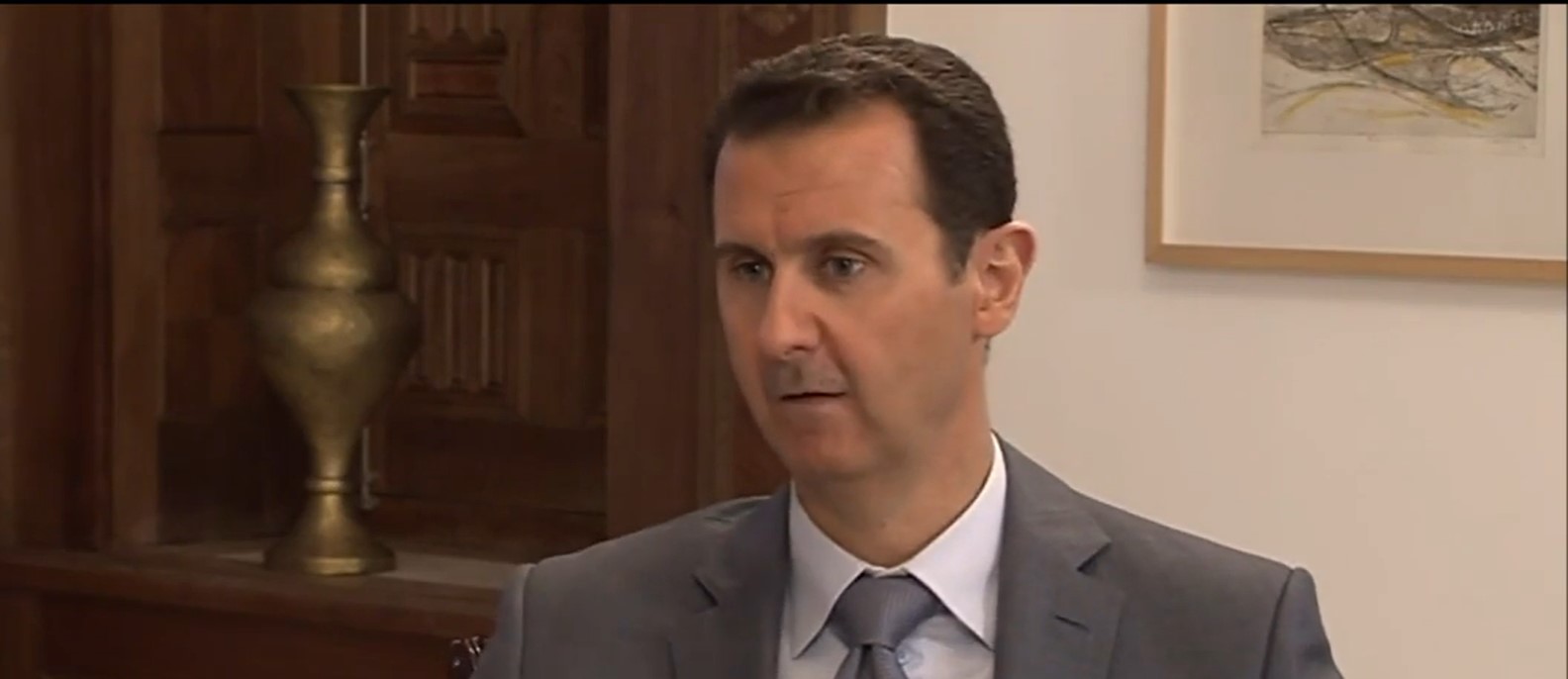Commentary: Big Tent Ideas
SHOSHANA BRYEN: Israel Is Tipping The Scales

(Screen Capture/PBS NewsHour)
It is not supposed to be difficult — there are good guys and bad guys, right? As fighting in Syria is renewed and escalates, it is not actually that simple.
In September, the U.N. Commission of Inquiry on Syria noted factional fighting and, as usual, blamed Israel. “Heightened regional tensions stemming from the conflict in Palestine have led to intensified Israeli airstrikes targeting Iranian officials and Iranian-backed militias across Syria.”
Unusually, the U.N. is not entirely wrong — although as usual its focus is misplaced.
The current fighting stems from the fact that Israel’s very successful retaliatory strikes deep into Iranian territory have eroded the value of Iran as a protector for the Syrian government. And Israel’s amazingly successful retaliation against Hizballah have caused the Syrian government to recalibrate. The Syria-Golan border has been quiet since 10/7 because Syria didn’t want to be directly attacked by Israel.
Who should you root for?
The easy part is understanding that Turkish troops are bombing Kurdish areas of northern Syria and have cut off water supplies to one million people. Kurds, a multi-religious ethnic group spread across parts of Turkey, Syria, Iraq and Iran, are supported by the United States. Kurds are good guys. Turkey is not, not in this case and not in others.
In Syria, the bad guys start with the Assad family, Alawite Muslims, an offshoot of Shiite Islam, often derided as “apostates” or “devil worshippers” by other Shiites. In 1983, Hafiz Assad went to Iran to visit the mullahs. In exchange for becoming the Islamic Republic’s first regional proxy, Iran armed and financed Assad and Hizballah in Lebanon. They continued with Bashar Assad who took over in 2000.
During the Syrian civil war, which began in 2011, Iranian militias were largely responsible for driving the Sunni refugee flood from south to north. The war killed more than 500,000 people and created 5.4 million refugees outside Syria and 6.8 million inside. Hizballah units participated as did the Russians, who aided Assad’s use of chemical weapons against his people.
It was easy to see who the bad guys were.
However, during the civil war, a collection of Sunni organizations — some religious and some secular nationalist coalesced: Jaysh al-Ahrar, Jabhat Fateh al-Sham (JFS), Ansar al-Din Front, Jaysh al-Sunna, Liwa al-Haqq, and Nour al-Din al-Zenki, to be specific.
If you don’t remember which is which, never mind. But know that some were supported by Turkey, some by ISIS and Saudi Arabia, and some have/had Taliban connections — they are all bad guys, and the war never actually ended.
Well-covered by Iranian money and militias and with the Russians in their naval bases in Tartus and Latakia, the Assad regime wasn’t ever really in trouble and paid no international price for its clear war crimes.
Definitely bad guys. Except.
Russia’s protection did not extend to Hizballah. A “deconfliction” agreement between Russia and Israel — or at least an agreement that Israel would not attack Russian assets and would let the Russians know what they needed to know — has allowed Israel to take out Iranian and Hizballah assets in Syria before they got to Lebanon. Not all of them, but a lot of important ones.
You can see the transit routes here, as shown by the Israel Defense Forces.
So, are the Russians good guys or bad guys? Or both? And why does it matter right now?
It matters now because Israel has been effectively reducing the influence and capability of Iran’s proxies and of Iranian conventional capabilities in Syria, in Lebanon, and in Gaza. (Wait! An Israeli newspaper ran the headline this week: “Increasingly Flexible Hamas Open to Temporary IDF Presence at Egypt-Gaza Border.” Wonder why?)
The erosion of Assad’s position may be problematic for Israel.
Turkey’s government is Islamist and supports both Sunni and Shiite radicals. It hosts both Hamas and Hizballah and has been touted as a potential landing spot for leaders of both. Russia, having had a disgusting, criminal campaign against its own Chechen Sunni Muslims, hates Sunni radicalism as much as it does Shiite Hizballah radicalism.
Anton Mardasov, of Russia’s Middle East Institute, writes, “There is little doubt in Russia that the… [current Islamist] offensive was supported by Turkey,” citing the rapid supply of ammunition and coordination with Turkish-backed forces. He adds: “This should serve as a stark reminder to Assad of his actual capabilities, as his power has only survived thanks to Russia, Iran and Hizballah — all of which are currently preoccupied with their own challenges.”
Odd is the day that the Russian view makes the most sense — help Assad defeat the Sunni Islamists and watch quietly as Shiite Islamist Iran is eroded. It isn’t comfortable, but the West should probably root for Assad and the Russians.
And Israel, as it continues to tip the scales.
Shoshana Bryen is Senior Director of the Jewish Policy Center and Editor of inFocus Quarterly magazine.
The views and opinions expressed in this commentary are those of the author and do not reflect the official position of the Daily Caller News Foundation.
All content created by the Daily Caller News Foundation, an independent and nonpartisan newswire service, is available without charge to any legitimate news publisher that can provide a large audience. All republished articles must include our logo, our reporter’s byline and their DCNF affiliation. For any questions about our guidelines or partnering with us, please contact [email protected].

